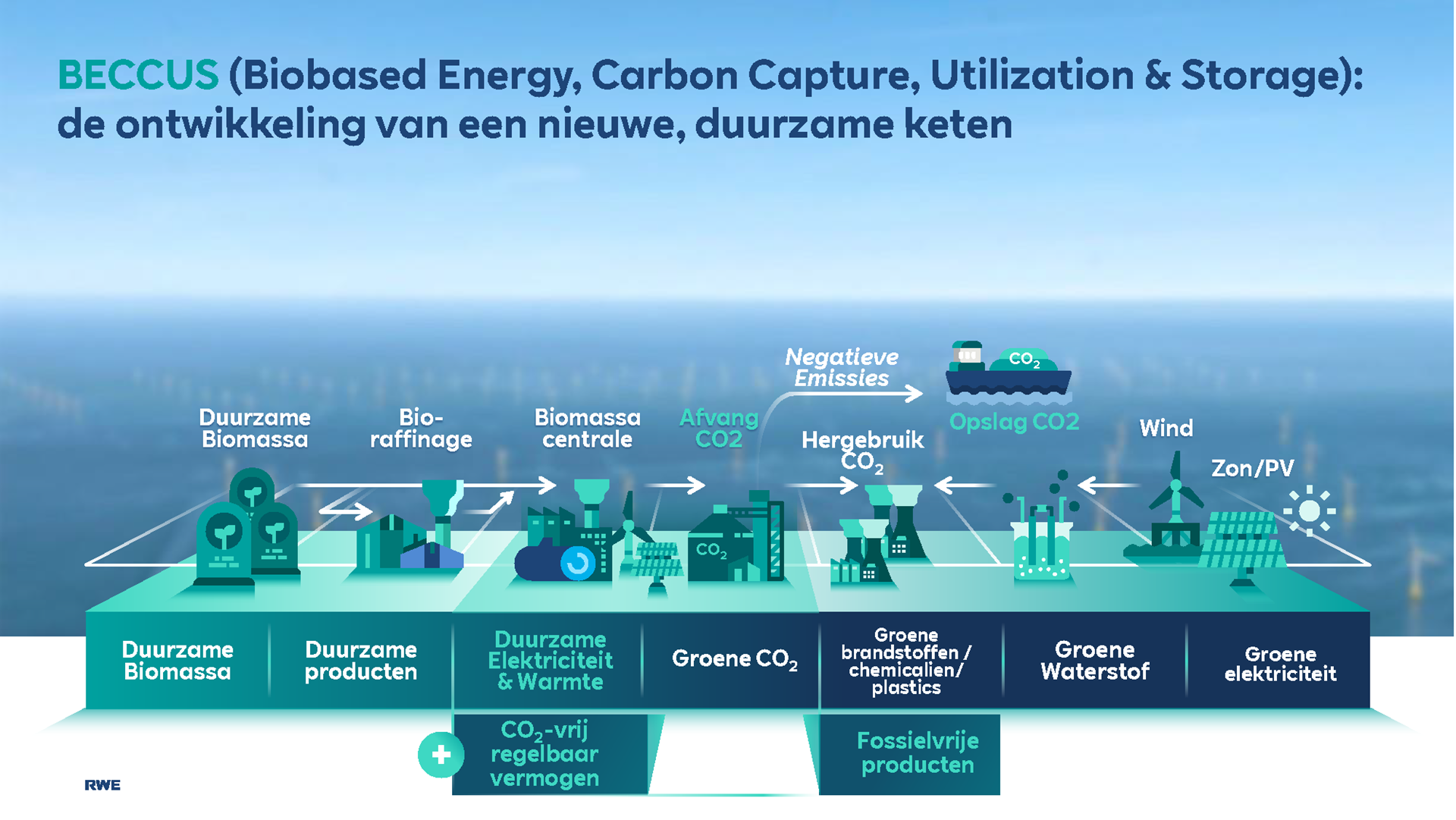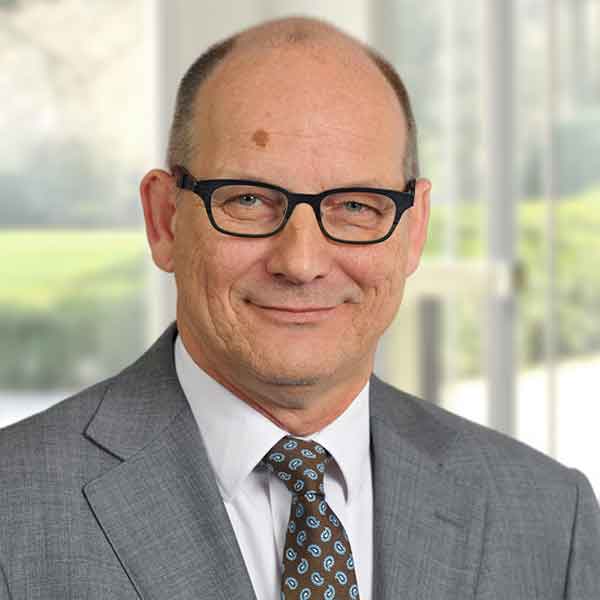To meet the one-and-a-half-degree target, the amount of CO₂ in the air needs to be drastically reduced. One way to do this is to add less CO₂ to the atmosphere but that is not enough. On a European and global scale, large amounts of negative emissions that remove net CO₂ from the air are unavoidable, the Intergovernmental Panel on Climate Change (
IPCC), the Netherlands Environmental Assessment Agency (
PBL) and the
Dutch government concluded the recent years. This is also indispensable in the Netherlands in the (medium-)long term. The recently published Climate and Energy Outlook shows a big gap towards 2030: PBL expects at least 39% and at most 50% CO₂ reductions with existing policies, while 55% was the minimum target and 60% the target. This is a gap of 12 to 36 megatons. A fair number of companies and startups in the Netherlands are now ready to start working on this, including RWE.
Taskforce Negative Emissions (TNE)
RWE presented the plans for the BECCUS project during the kick-off of the Taskforce Negative Emissions (TNE). In the Taskforce, set up by the
CCU alliance in cooperation with the Dutch Sustainable Energy Association (NVDE), companies and scientific institutions work on capturing and sequestering CO₂ in products and processes, leading to avoided and negative emissions. There are now several initiatives that can capture and sequester atmospheric and biogenic CO₂ underground (BECCS), in products (BECCUS) and in nature (Nature Based Solutions, NbS).
Negative emissions no excuse for delayed action
According to RWE, renewable energy generated by wind and solar is the so called workhorse of the energy transition but power plants continue to play an important role because of their controllable or flexible power. This is essential for a reliable, sustainable energy system in the Netherlands. RWE is therefore making its power plants more sustainable, replacing gas with green hydrogen, and with its coal- and biomass-fired power plants, the company is going one step further. Here, the ambition is to bring the power plants step by step to 100% biofuels and add CO₂ capture, reuse and storage, if technically and economically feasible.
RWE wants to partially reuse the captured CO₂ for sustainable plastics and biofuels and store the other part. This will create negative CO₂. This storage could, for example, be in gas fields in the North Sea and off the coast of Norway, where such projects are being worked on.
Speed required from government
Knowledge and technology are in place and more and more companies are basing their strategy for the coming years on the negative emissions pathway. But scale-up and speed are needed to achieve large-scale development. However, the government does not yet have a policy vision and among companies there is fragmented knowledge and experience on the business application of CO₂ capture and reuse. The Negative Emissions Taskforce (TNE) wants to change this and outlines in a Manifesto what is needed to achieve this, such as, for example, the development of a negative emissions roadmap, support and stimulation of the technologies and the creation of a market.

